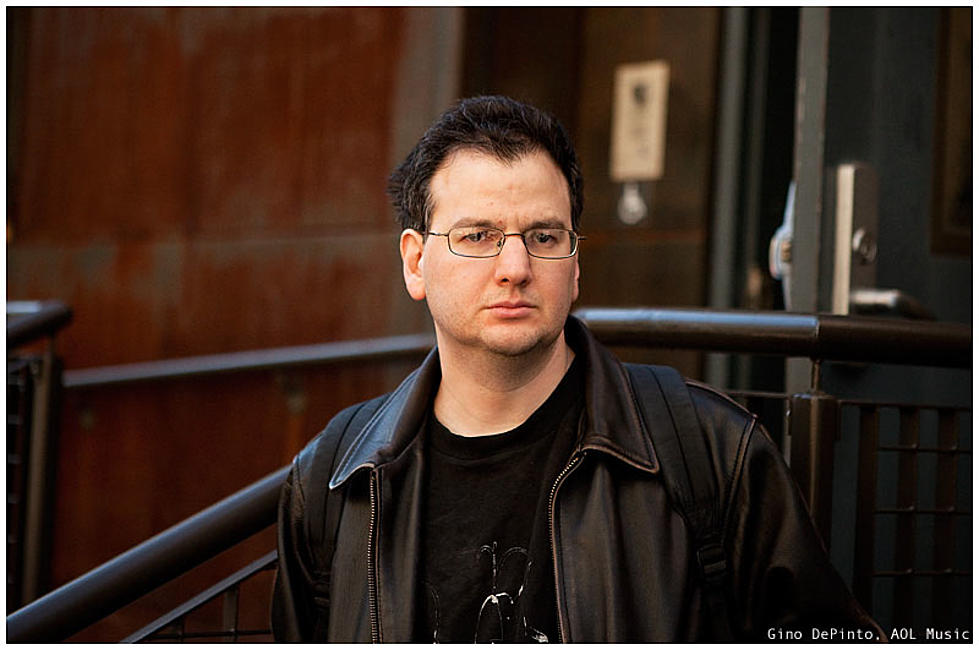Interview: Guitarists Glenn Tipton and Richie Faulkner Discuss Judas Priest After K.K. Downing
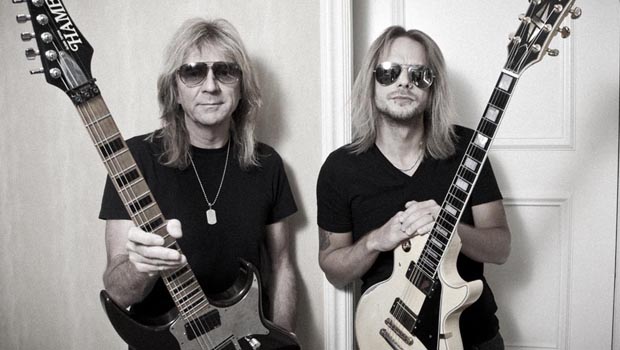
Precise, blazing riffs. Stellar guitar harmonies. Solos laced with melody and speed. These have been the hallmarks of Judas Priest ever since former Flying Hat Band guitarist Glenn Tipton joined the band in 1974.
For 40 years, the team of Tipton and band co-founder K.K. Downing led the heavy metal brigade, introducing a twin-guitar attack to the genre, defining a sound rooted in power chords, palm muting and back-and-forth lead breaks that inspired generations of groups, from Iron Maiden to Slayer.
Along the way, Judas Priest survived countless trends - punk, new wave, even grunge -- and continued to pave an unapologetic path that adhered to a core foundation of soaring melodic vocals and the explosive dual guitars of Tipton and Downing. Then last winter, Downing unexpectedly quit the band.
With a farewell tour planned and a new studio album in the works, Judas Priest were temporarily thrown off guard. "It was a complete shock," Tipton says from a velvety chair in a suite at the Jumeirah Essex House Hotel, which overlooks New York's Central Park. "We thought it was the end. We didn't even start to look for another guitarist for three or four months."
Realizing that breaking up would be an abrupt and unsatisfying end to a colossal legacy, Judas Priest decided to replace Downing. They considered tracking down an established guitarist from another band but opted instead to look for someone new.
"There are so many well-known guitar players out there who would have come over and stood in," Tipton says, stirring a ceramic cup of coffee with a small metal spoon. "A lot of them have played Priest numbers earlier in their career. But that wasn't the direction we wanted to go in."
Enter 32-year-old Richie Faulkner, a London-based performer who had played with Lauren Harris, daughter of Iron Maiden bassist Steve Harris. Not only does Faulkner perform with agility and grace but he also genuinely looks the part. Faulkner prowls the stage hunched like Priest vocalist Rob Halford, bobs his shaggy blonde head in sync with Tipton and bassist Ian Hill, and tilts his guitar headstock to the sky as he solos. Clad in black leather, with rows of gleaming horizontal sh1ds covering the chest and sleeves of his jacket, he resembles a young Downing and from a short distance could easily be mistaken for a longtime member of the band.
Get The Pick Newsletter
All the latest guitar news, interviews, lessons, reviews, deals and more, direct to your inbox!
In person, Faulkner is amiable and soft spoken, humble, yet confident. He knows he's good but recognizes how fortunate he is. "It feels like a dream every day," he says repositioning his dark shades. "I know that it's real, of course, but once or twice every show I see the crowd out there and I realize I'm standing next to Rob Halford. That moment is always spectacular."
With Downing in retirement, Faulkner is the ideal guitarist to accompany Tipton to the end of Judas Priest's touring career. But what about that studio album they've been talking about since January 2011? To those who think Downing's departure means it will never materialize, you've got another thing coming.
The recently released greatest-hits package The Chosen Few, which feah1res a tracklisting chosen by rock icons such as Ozzy Osbourne, Corey Taylor, Lemmy Kilmister and Scott Ian, is just a placeholder. The proper followup to 2008's ill-fated Nostradamus is on the way. In a revealing interview, Tipton and Faulkner talked about Downing's departure, the audition that scored Priest their newest member, the challenges of the Epitaph tour and the fuh1re of the Metal Gods.
GUITAR WORLD: The last tour you did was for the 30th anniversary of British Steel. From the audience it looked like everyone was having a good time. Were there any signs behind the scenes that K.K. was losing interest?
GLENN TIPTON: No, we all had a great time. That's why we were so surprised when Ken informed us last November that he wanted to retire. He had problems with his wrist and touring, and he sent us an email saying he wanted to retire not just from the band but from the music business.
Were you annoyed that he informed you in such an impersonal way?
TIPTON: No, I just respected Ken's decision. It must have been very difficult for him and he must have thought long and hard about it.
There have been reports that he wanted to focus his energy on running a chain of golf courses.
TIPTON: Yeah, but I don't think that's the reason. Golf's his passion, and there's nothing wrong with that. When he was in the band he never let that side of things get in the way. I can't say enough good about Ken. We worked together hard on our application of the twin-guitar attack for years, and we've written some great songs together.
Were you confident you'd find someone good to replace K.K.?
TIPTON: Not at all. If you had asked me back then I would have said, "That's the end of the band." Then Richie came along and blew our minds, because he captures the essence of Judas Priest but he does his own thing as well It's amazing the way that guy has blended in both on and offstage.
How did you find Richie?
TIPTON: He was recommended to us by a guitarist named Pete Friesen [Alice Cooper, Bruce Dickinson]. We actually contacted Pete to possibly fill the position. And he said, "I'm honored, but I don't feel I'm quite right for Judas Priest" He recommended Richie.
RICHIE FAULKNER: I played with Pete years ago in a cover band in London called Metalworks, but we hadn't seen each other in four or five years. Pete actually gave them my old number, so luckily they got in touch with Iron Maiden's production crew, who I had been out with when I played in Steve Harris' daughter's band [the Lauren Harris Band]. Maiden had my number. Luckily for me, Priest were persistent.
How did you find out they wanted you to try out for them?
FAULKNER: In the end of April I got a call out of the blue from [Judas Priest's manager] Jayne [Andrews]. She actually sent me two emails before that, and I deleted them, because I didn't recognize the name and I thought they were spam. When she called, I was trying to sleep, and I thought they needed a guitar tech. Then I suddenly realized she was talking to me about actually being in the band, and I couldn't believe it I was in London, so I went up to their place, near Birmingham, the next day.
TIPTON: He came to my house, and immediately I liked him, which is probably the most important thing in a band. I didn't want to put him under too much pressure, so I said, "Okay, there's a rig up in my studio. Get yourself sorted out and warm up." I went downstairs and listened to what he was doing, and I could tell right away that he's an incredible guitar player. Then I came back, and he said, "What do you want me to do, doodle?" And I said, "Yeah, play whatever you want."
FAULKNER: I was just messing about, not playing scales exactly. I don't know any scales. I'm not big into theory. I know them, but I'm self-taught. I wouldn't know what they're called. I was just playing around with different licks.
TIPTON: It's not difficult to judge a good guitar player. When you're watching Richie, you can see how precise he is. So I said, "Okay, learn some Priest songs and show me what you can do with them." Within a couple days he came back, and we knew we'd found our man.
Were you nervous about auditioning?
FAULKNER: I don't want to sound arrogant, but I was confident. You don't get an opportunity like that every day, and you can't let nerves, doubt, worry or intimidation get in the way. As soon as you do, you could blow it. I knew I could do it. I knew I could handle it.
Did you try to play K.K.'s solos note-for a note?
FAULKNER: They told me they didn't want a K.K. clone. But I've always been the same kind of player as K.K. in the sense that he'd improvise his solos a bit live. So I took the essence of his solos and put my own stamp on them. The hardest song to work with was ''Victim of Changes," which is very improvised. It's erratic and there's a lot of whammy bar in there, so it wasn't easy to do, but it came naturally.
Glenn, how many players did you audition before Richie?
TIPTON: We hadn't auditioned anybody. We had tapes sent to us and there were other guitarists we were putting feelers out to. But when Richie came up, there was no need to meet anyone else.
Richie, when was the first time you stepped onstage with Priest?
FAULKNER: The first show of the tour was a warm-up show. I felt nervous for about 15 seconds while the intro was playing. But I knew what I had to do, and off we went.
Have there been any strange moments a since you've been with the band?
FAULKNER: Rob fell off the bike a couple weeks ago in Brasilia, Brazil. He drove it further than he normally does and went into the monitor system and fell over. That was a bit worrying until he got up and we saw he was laughing. Then it became something to laugh about for us as well. It's the second time that ever happened in his career.
TIPTON: When we did High Voltage in London, I knocked my top E out. It was detuned a semi tone or a tone, which is not difficult to do on a Judas Priest stage with motorbikes and bombs and flames. It was on the track "Starbreaker," and I don't even play the top E on that song until we come to the harmony section of the lead break. I just thought I'd played it wrong. The next song was ''Victim of Changes," where I start on the top E. I was horrendously out of tune and I realized what had happened. I had to stop the song-something I'd never done in 40 years. I said, "Hang on, Richie,' and he was a bit baffled.
Bands stop and start again all the time, whether they're out of tune or they just screw something up. You've really never stopped a song in 40 years?
TIPTON: Nope, never. There are times we've had sound problems where the drums have vanished or we've lost our way, but we've always managed to find our way back without having to stop. And the audience goes, "That's great! There's a bit of ad-Jibbing going on."
Did K.K. work with you on any of the songs that will be on your next album?
TIPTON: We obviously wanted Ken to play on the album, but he had already left the band. He made it quite clear that he didn't want us to try to persuade him to come back. So me and Rob started to write in January and February. I wrote enough for an album. We mixed three songs and ran out of time. We considered releasing an EP of three or four songs, but we decided instead to keep those tracks and put them on an album down the line.
And now we'll be able to work on new material with Richie, which will add a whole new dimension to the band. When we get done with this tour, we're all really looking forward to bouncing ideas off each other. We have two more albums in us -- at least two more albums, I'd say.
Photos: Jimmy Hubbard
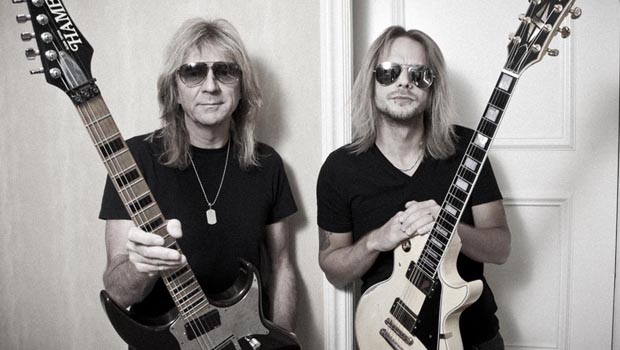
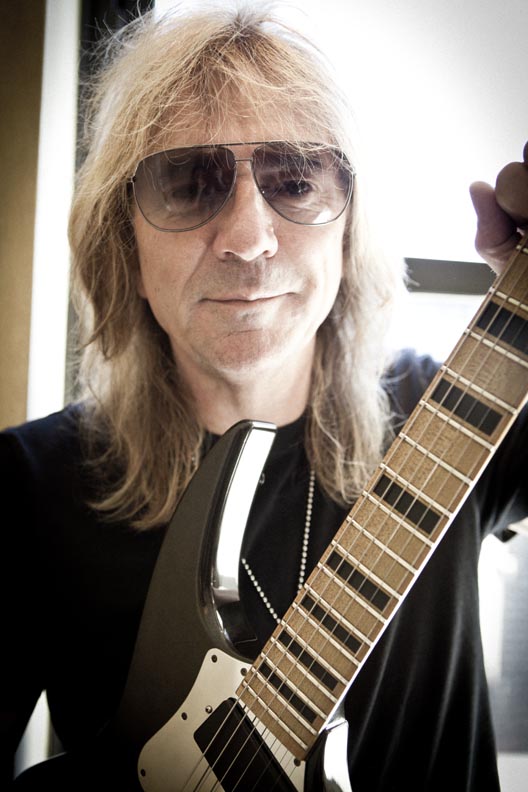
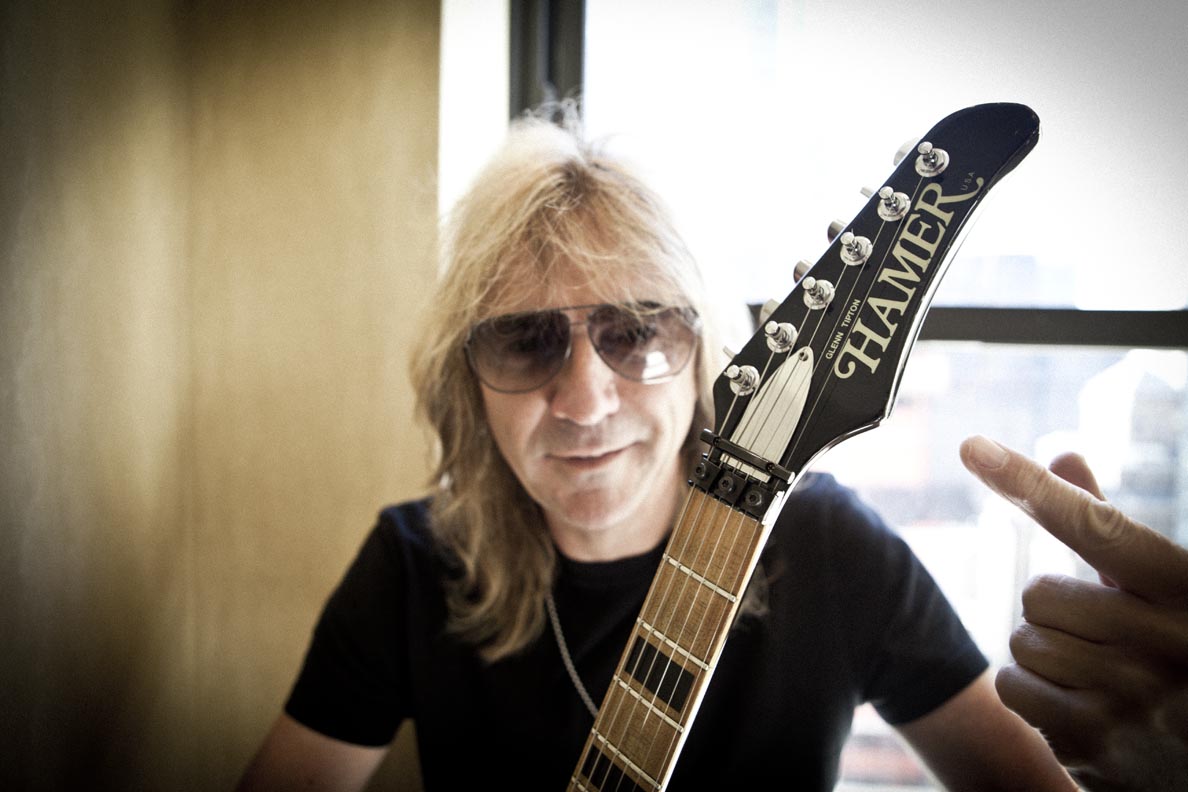
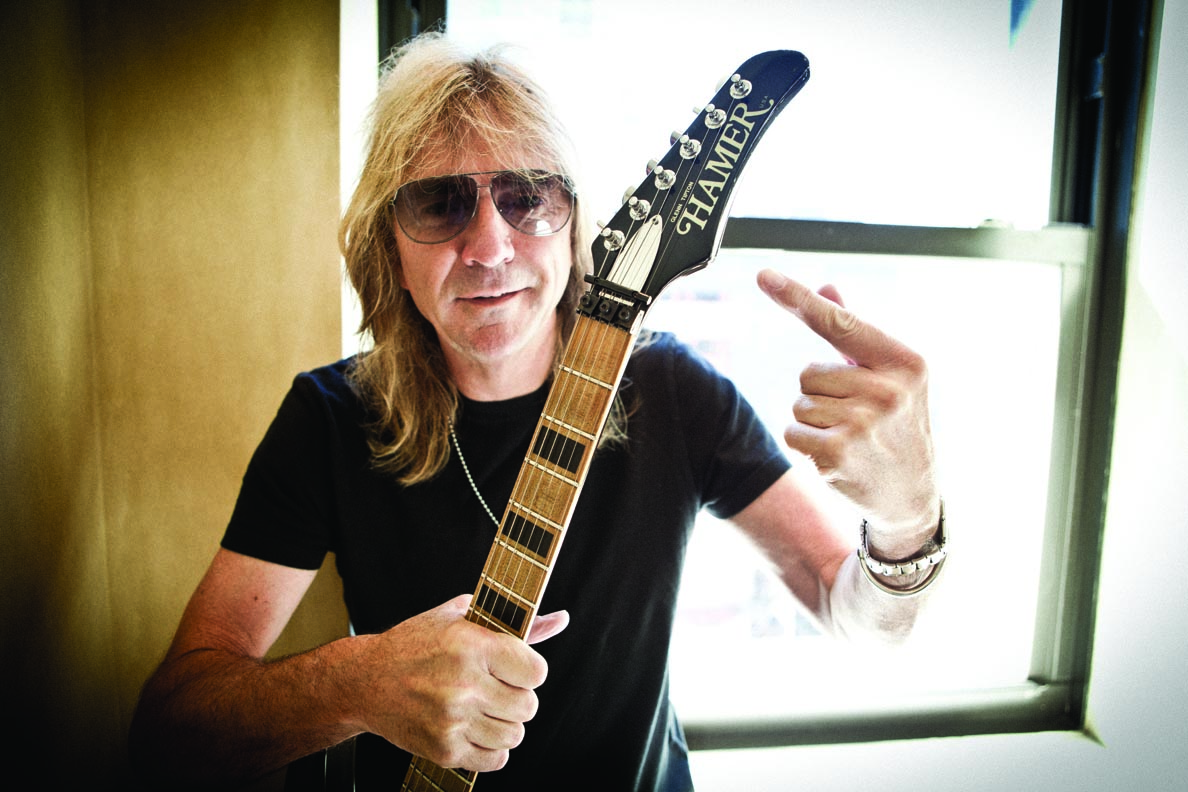
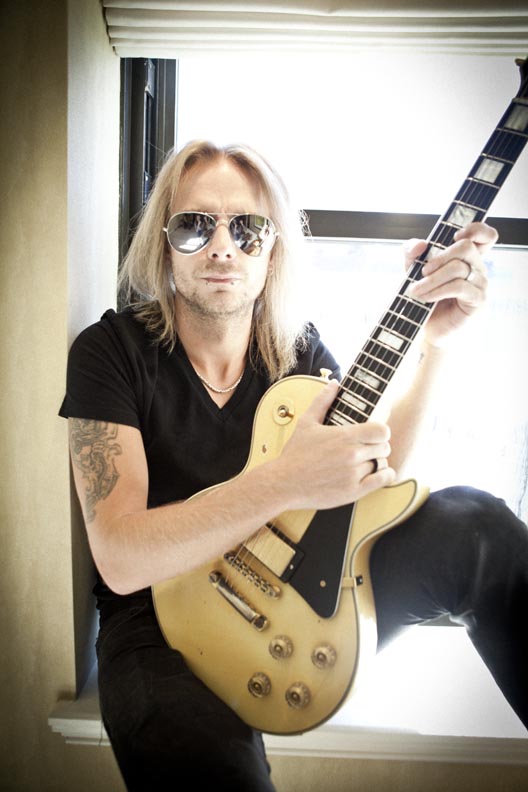
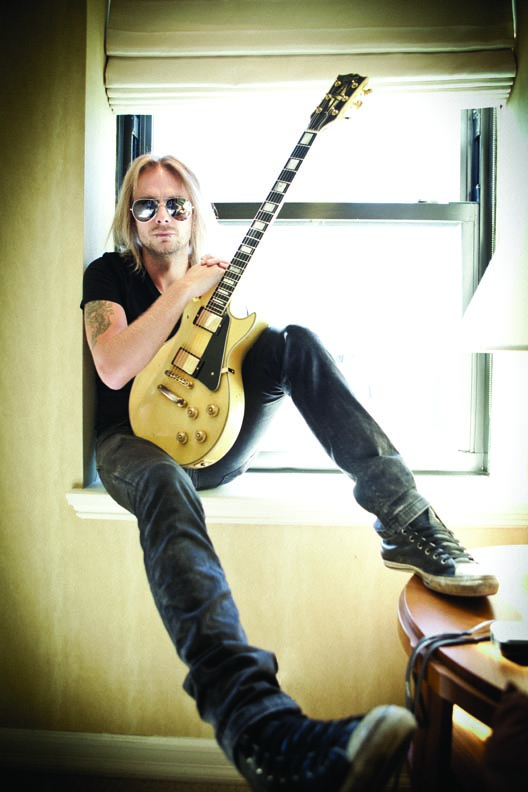
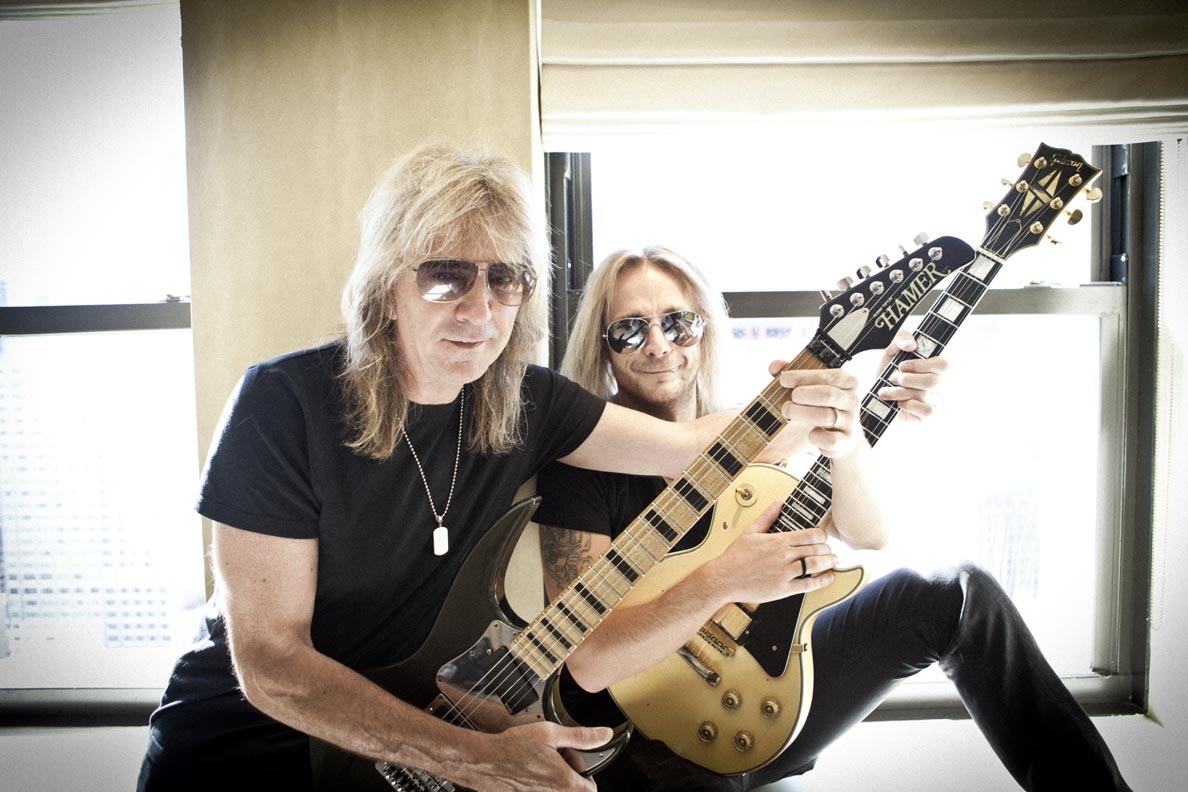
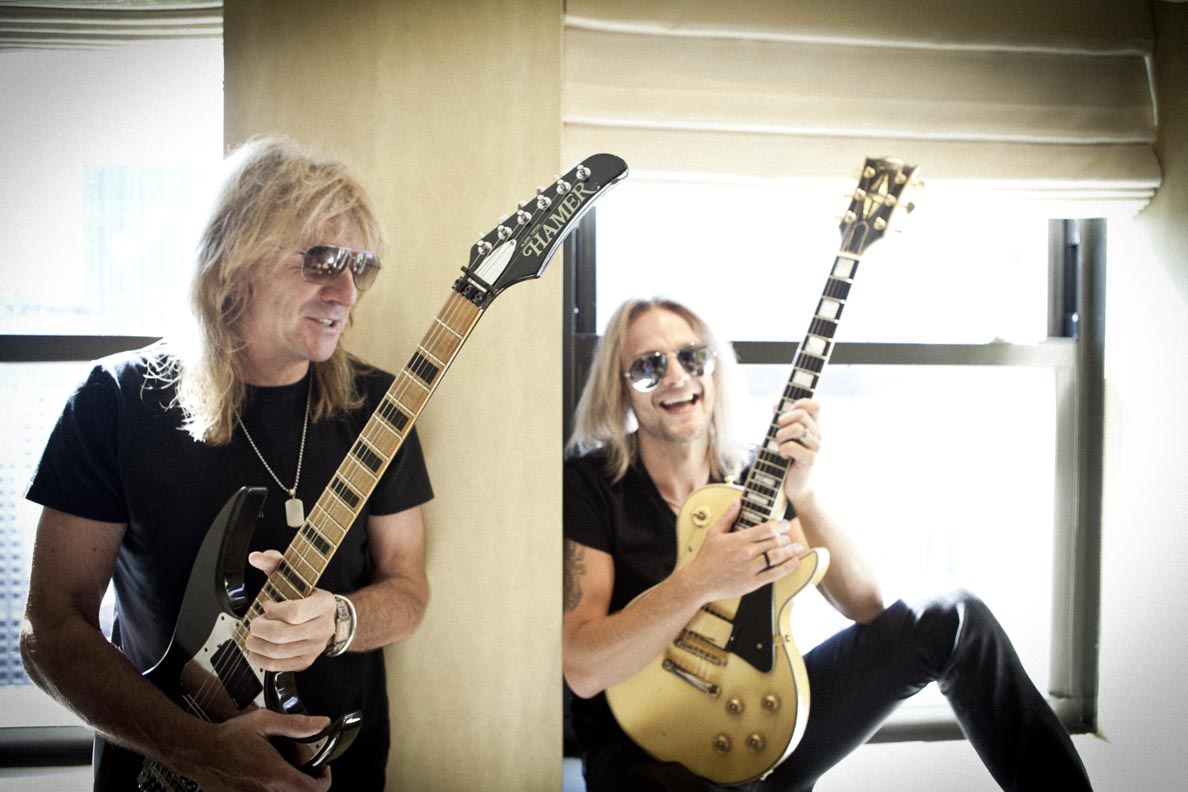
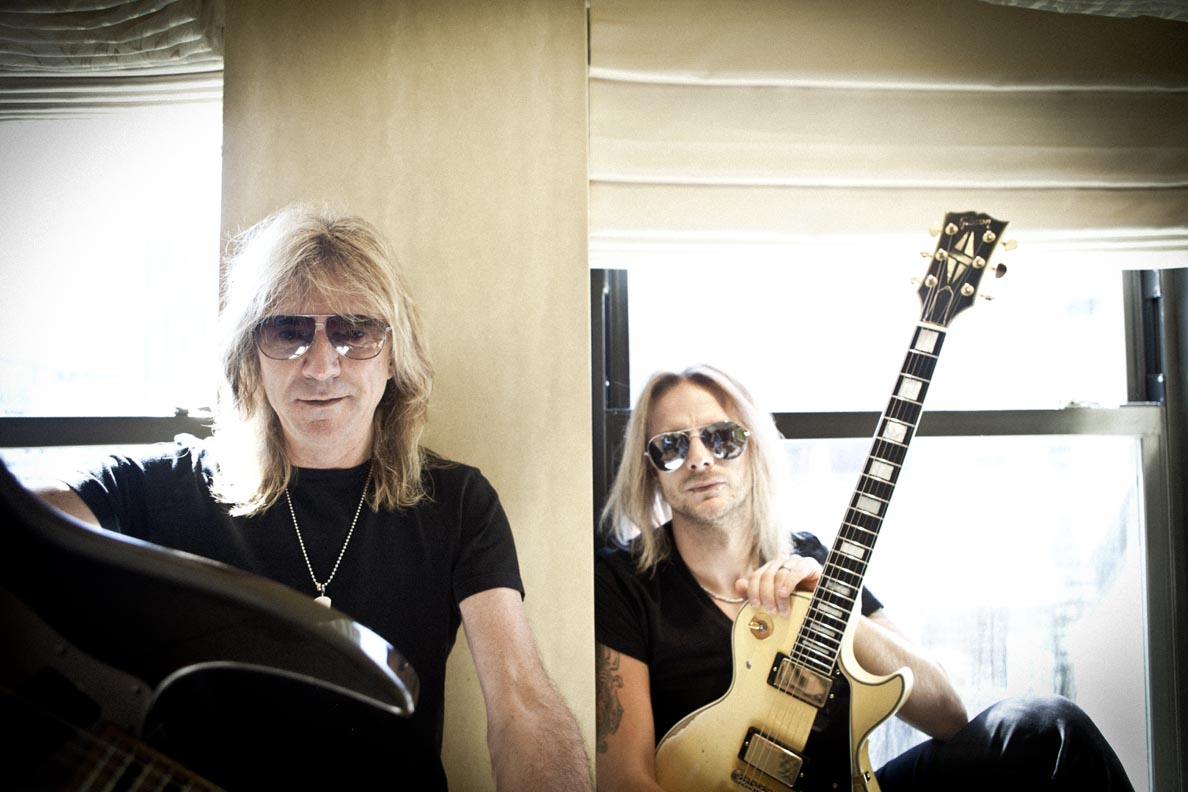
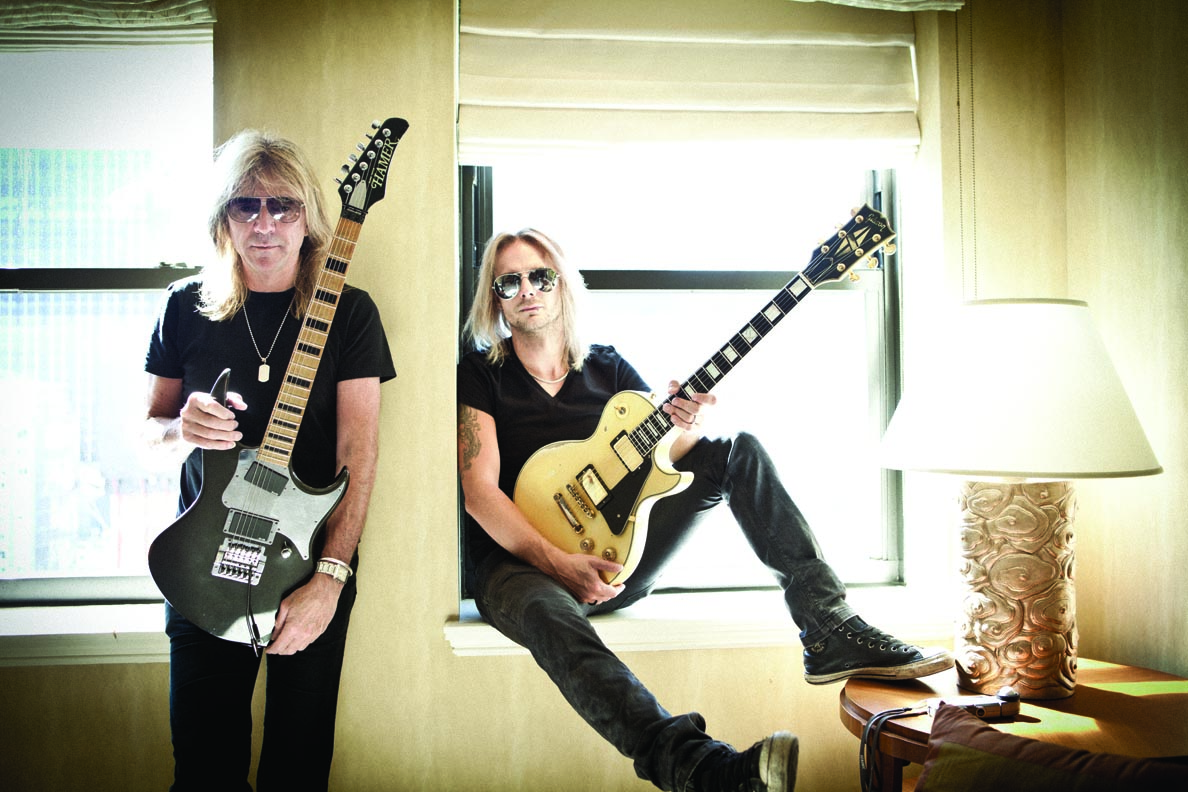
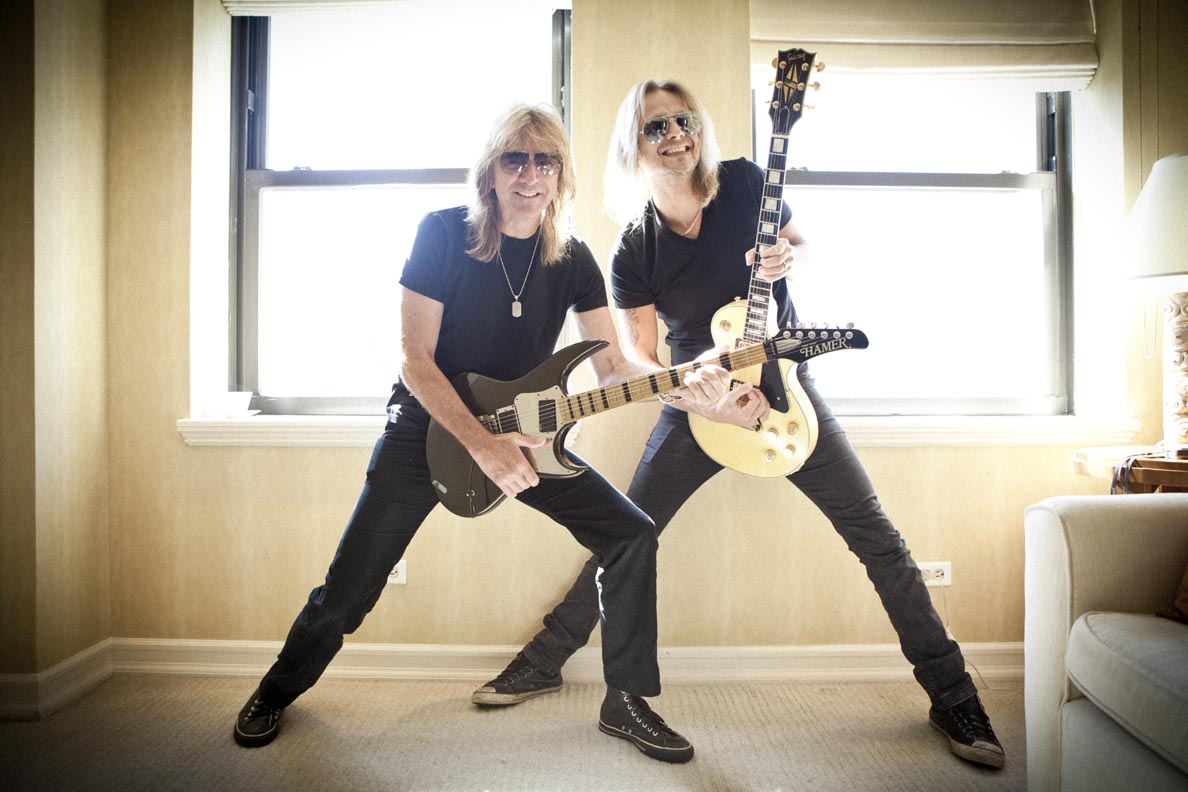
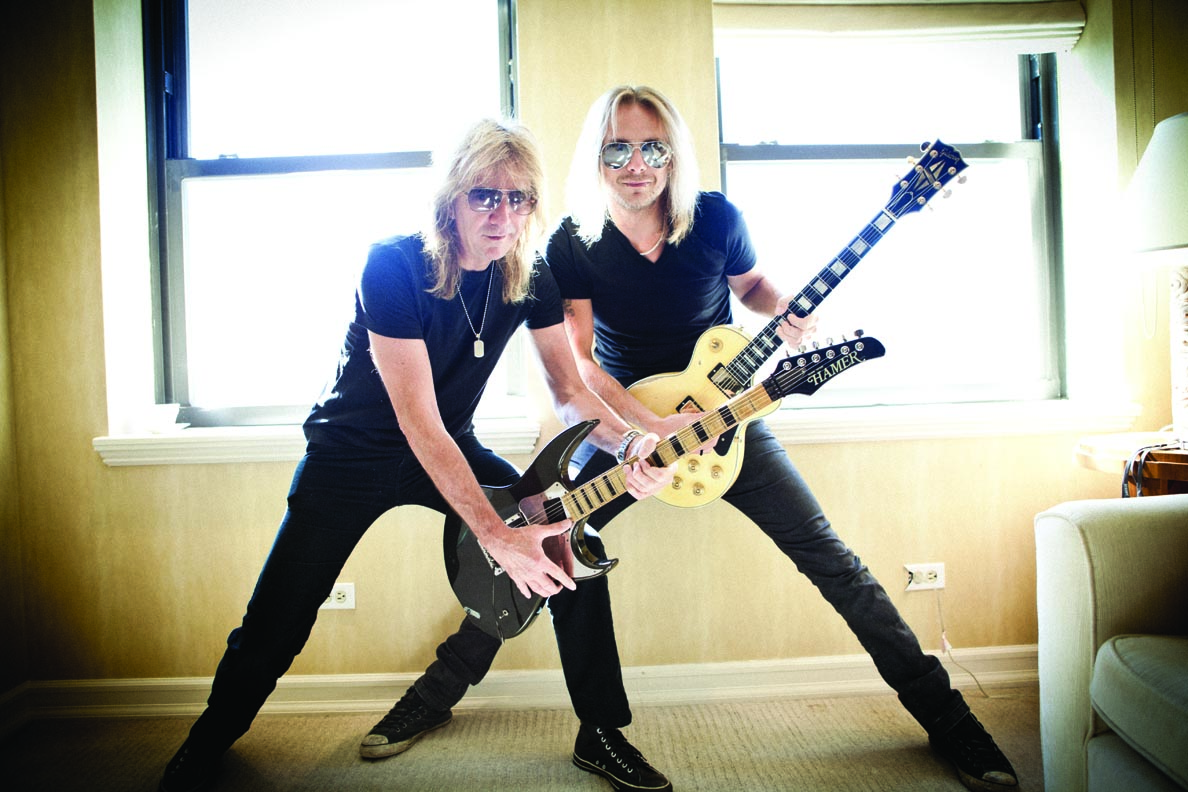
Jon is an author, journalist, and podcaster who recently wrote and hosted the first 12-episode season of the acclaimed Backstaged: The Devil in Metal, an exclusive from Diversion Podcasts/iHeart. He is also the primary author of the popular Louder Than Hell: The Definitive Oral History of Metal and the sole author of Raising Hell: Backstage Tales From the Lives of Metal Legends. In addition, he co-wrote I'm the Man: The Story of That Guy From Anthrax (with Scott Ian), Ministry: The Lost Gospels According to Al Jourgensen (with Al Jourgensen), and My Riot: Agnostic Front, Grit, Guts & Glory (with Roger Miret). Wiederhorn has worked on staff as an associate editor for Rolling Stone, Executive Editor of Guitar Magazine, and senior writer for MTV News. His work has also appeared in Spin, Entertainment Weekly, Yahoo.com, Revolver, Inked, Loudwire.com and other publications and websites.
“A virtuoso beyond virtuosos”: Matteo Mancuso has become one of the hottest guitar talents on the planet – now he’s finally announced his first headline US tour
“His songs are timeless, you can’t tell if they were written in the 1400s or now”: Michael Hurley, guitarist and singer/songwriter known as the ‘Godfather of freak folk,’ dies at 83
